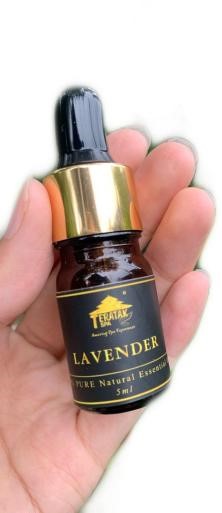
For centuries, people have turned to aromatherapy as a natural treatment for various illnesses. While essential oils may look like your best option to relieve pregnancy pains, they aren’t always recommended. Why? During pregnancy, the ingestion or topical application of essential oils can affect fetuses’ health. This eventually brings me to the essential point: slathering on your favorite essential oil is a risky move for moms-to-be.
During the last decade, essential oils have experienced massive popularity. Bolstered by a monumental increase in demand, these plant extracts have piqued sales and variety. But the hype has given way to a glut of misinformation about the use of essential oils.
Pregnant women, in particular, must be careful about their exposure to essential oils and their direct effect on the human body. In spite of being popular, these chemical compounds can be both blessing and bane, especially for pregnant and breastfeeding ladies out there.
Let’s get started, and learn a few rules about the safe and effective use of essential oils during pregnancy.
Essential oils during the first trimester
Most therapists refuse to treat pregnant women during their first trimester. My best advice is to take a leaf out of their book and wait until the second trimester to try anything – and yes, that includes essential oils.
Most people underestimate how potent essential oils are. Before topical use or ingestion, you must understand that essential oils are no benign substances, and using them so early in the pregnancy could cause uterine contractions or worse; adversely affect your baby’s development.
Avoid any massages or essential oil treatments on your bump during the first trimester. Wait until the second trimester to try out essential oil treatments, and even then, purchase only high-quality organic essential oils from reputable suppliers. Although research has yet to completely confirm the negative effects of essential oils on pregnant women during their first trimester – it is always better to be safe than sorry.
Essential oils in the sceond & third trimester of pregnancy
After the first trimester is over, the risk of miscarriage is significantly lower. Secondly, the baby is no longer highly vulnerable to danger and is more developed by the time the mother enters the second trimester. Therefore, some essential oils are safe to use during these phases of the pregnancy.
Here are the top 3 essential oils that do not pose a threat to the fetus’s development and can help relieve pregnancy aches and pains.

1. Lavender
日本藤素
e=”text-align: left;”>Lavender is perhaps the most popular choice of essential oil in the world. It is preferred for its antiseptic, analgesic, and antidepressant properties. Lavender essential oil makes you feel calm and relaxed during the most stressful moments of your pregnancy. Its added benefits include fresh and healthy-looking skin and reduced stress. Lavender oil works wonders for your body during pregnancy. It supports cell renewal and helps your body to deal with fluid retention.

2. Ylang Ylang
This floral essential oil will rid you of your depressing mood and increased blood pressure. Ylang-ylang creates an excellent blend with bergamot and lavender to help your body relax, gain emotional balance, and stay calm. Its restorative properties will keep you at ease even when you are overworked a壯陽藥
nd irritable. A blend of ylang-ylang, rose geranium, and lavender essential oils with Epsom salt and baking soda will drain your body of stress and help restore your emotional balance.
3. Lemon
Lemon citrus oil is heavenly when blended with ginger oil. You can sniff this blend or diffuse it first thing in the morning to start your day with a relaxed and refreshing mood. Lemon has natural cleansing properties and a great scent to help with morning sickness.
Which Essential Oil Should be avoided During Pregnancy ?
Over the years, some essential oils have proven to be extremely beneficial during pregnancy. However, the use of a few essential oils should be restricted.
Following is a list of a few essential oils you must avoid during pregnancy:
- Basil
- Cedarwood
- Cinnamon
- Clove
- Fennel
- Hyssop
- Juniper
- Parsley
- Pennyroyal
- Rosemary
- Sweet Marjoram
- Thyme
Stay safe while using essential oils during pregnancy
The usage of essential oils for pregnant women is a controversial topic where many debate the benefits and potential risks of these natural extracts. But according to the National Association for Holistic Aromatherapy (NAHA), the use of essential oils during pregnancy is highly instrumental for moms-to-be suffering from nausea, headaches, back pain, fatigue, severe anxiety, mood swings, and insomnia.
In spite of its many benefits, certain precautions must be taken in the use of essential oils during pregnancy. You must only use these oils externally because ingesting these powerful chemical compounds can result in a miscarriage, preterm labor, or inhibit the development of your baby. Lastly, you must always dilute these essential oils with carrier oils before application.
Disclaimer: The contents of this website are for informational purposes only and do not constitute medical advice; the content is not intended to be a substitute for professional medical advice, diagnosis, or treatment. Always seek the advice of a physician or other qualified health provider with any questions you may have regarding a medical condition.